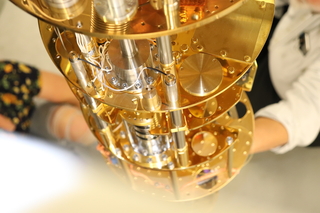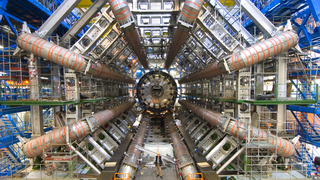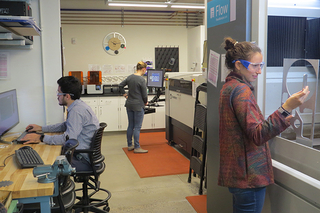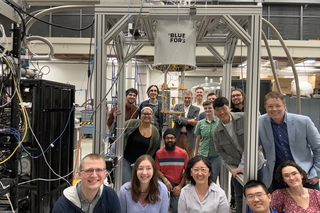Biographical Sketch:
Keith Baker is the D. Allan Bromley Professor of Physics at Yale’s Wright Laboratory. Baker’s research sets new limits on searches for physics beyond the Standard Model.
Prof. Baker is best known for his contributions towards the discovery of the Higgs boson as a member of the ATLAS collaboration, and his work on dark matter.
Before joining the faculty at Yale, Baker was on the faculty of Hampton University with a joint staff scientist position at the Thomas Jefferson National Accelerator Facility (JLab). Previous to this, Baker was a postdoctoral researcher at Triangle Universities Nuclear Laboratory (TUNL) and Los Alamos National Laboratory (LANL).
Prof. Baker received his Ph.D. in physics from Stanford University working on experimental nuclear physics and his B.S. in physics from the Massachusetts Institute of Technology (MIT).
Baker has fulfilled his responsibility as a National Science Foundation Committee of Visitors (Particle Physics) and was a judge for the Yale College Porter and Field Prizes. Baker is the academic editor and co-author of “Quantum Entanglement in High Energy Physics”.
Research:
Keith Baker focuses on particle physics research at the energy frontier using ATLAS at the Large Hadron Collider in Switzerland, and precision studies at subeV energies. He helped build the ATLAS detectors and was part of the team that carried out the machine learning analysis in the discovery of the Higgs boson, the last elementary particle predicted in the Standard Model of particle physics. Baker is the Yale ATLAS team leader and Yale ATLAS Institute representative. He is also an online data quality transition radiation tracker shifter for ATLAS.
The Baker group studies quantum information science in high energy physics, quantum entanglement, Bell’s inequality, and entanglement entropy. The group demonstrates applications of machine learning, quantum computing, and quantum algorithms in physics analyses at high energies to better understand certain anomalies in data from high energy particle physics experiments.
Baker is searching for dark matter using the Higgs boson and in the form of axions, which are very low mass particles that are a theorized candidate for dark matter. To enable the latter, the Baker group will install detectors in the new Axion Longitudinal Plasma HAloscope (ALPHA) experiment, located at Wright Lab. ALPHA will search for higher mass axions by employing a novel axion detector called a plasma haloscope. ALPHA will comprehensively investigate how new experimental ideas using plasmas can be used to detect the axion.
The Baker group carries out research and development of monolithic CMOS (complementary metal oxide semiconductor) silicon sensors for use in high energy physics. This makes use of Field Programmable Gate Arrays (FPGA’s) and software, as well as analysis programs and programming tools.
Education:
Ph.D., Stanford University, 1987
Honors & Awards:
Baker was inducted into the American Academy of Arts and Sciences and is an American Physical Society (APS) Fellow. He also has received the Edward Bouchet Award from the APS; the Elmer Imes Award for Outstanding Research; the E. L. Hamm Sr. Distinguished Teaching Award; and the National Award for Teaching Learning and Technology. He was honored as a U.S. ATLAS Distinguished Researcher.
Selected Publications:
- O.K. Baker and D.E. Kharzeev, “Thermal radiation and entanglement in proton-proton collisions at the LHC”, Phys. Rev. D 98 (2018) 054007.
- M. Aaboud et al, O.K. Baker, … The ATLAS Collaboration, “Measurement of inclusive and differential cross sections in the H→ZZ*→4l decay channel in pp collisions at √s = 13 TeV with the ATLAS detector”, JHEP 10 (2017) 132 (Baker group major contribution; useful for entanglement entropy and thermal radiation studies).
- M. Aaboud et al, O.K.Baker,… The ATLAS Collaboration,”Measurement of the Higgs boson coupling properties in the H→ZZ*→4l decay channel at √s = 13 TeV with the ATLAS detector” JHEP 03 (2018) 095 (Baker group major contribution; useful for entanglement entropy and thermal radiation studies).
- G. Aad, O.K. Baker, … The ATLAS Collaboration, “Search for new light gauge bosons in Higgs boson decays to four-lepton final states in pp collisions at 8 TeV with the ATLAS detector”, Phys. Rev. D 92 (2015) 092001 (Baker group co-led this Dark Sector search study).
- INSPIRE publications




